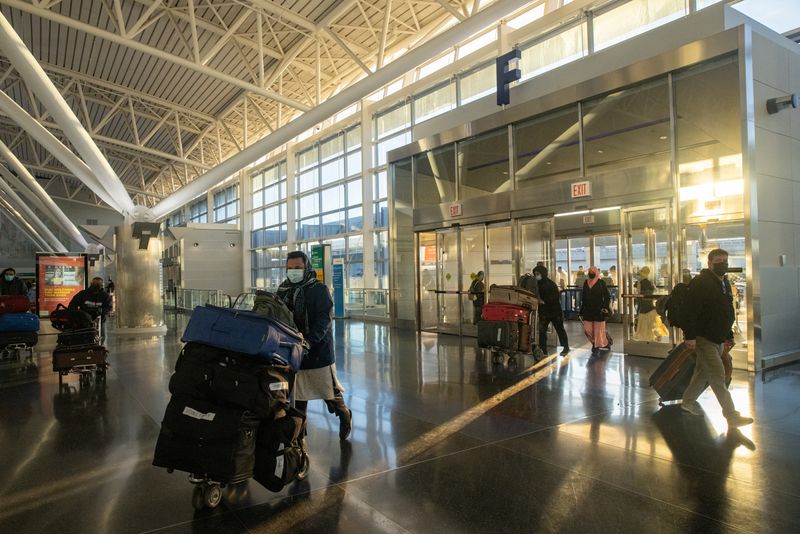By David Shepardson
WASHINGTON (Reuters) -United Airlines said on Friday it will suspend service in late October to New York's John F. Kennedy Airport (JFK).
Earlier this month, United had threatened to take the action if the Federal Aviation Administration (FAA) did not grant the air carrier additional flights.
United has been flying just twice daily to San Francisco and Los Angeles from JFK, the busiest New York-area airport, after resuming service in 2021.
"Given our current, too-small-to-be-competitive schedule out of JFK — coupled with the start of the Winter season where more airlines will operate their slots as they resume JFK flying — United has made the difficult decision to temporarily suspend service at JFK," United said in a memo seen by Reuters. The airline did not specify when it might resume service.
United said its "discussions with FAA have been constructive" but added "it's also clear that process to add additional capacity at JFK will take some time."
United said the decision would impact 100 employees who work at JFK but emphasized that "no one is losing their job" and employees will transition to other nearby stations.
United has been working to pursue additional slots - which are takeoff and landing authorizations - through the FAA and by seeking commercial agreements to acquire slots from other airlines.
The FAA said Friday it is "dedicated to doing its part to safely expand New York City airports and airspace capacity. We will follow our fair and well-established process to award future slots to increase competition."
United said without permanent slots it cannot serve JFK "effectively compared to the larger schedules and more attractive flight times flown by" JetBlue Airways (NASDAQ:JBLU) and American Airlines (NASDAQ:AAL).

United in 2015 struck a long-term deal to lease 24 year-round slots at JFK to Delta Air Lines (NYSE:DAL) as it ended JFK service to concentrate at its nearby Newark hub in northern New Jersey.
United argues there is room to grow at JFK, the 13th-busiest U.S. airport, because the FAA and the Port Authority since 2008 have made significant infrastructure investments, including "the widening of runways, construction of multi-entrance taxiways, and the creation of aligned high-speed turnoffs."